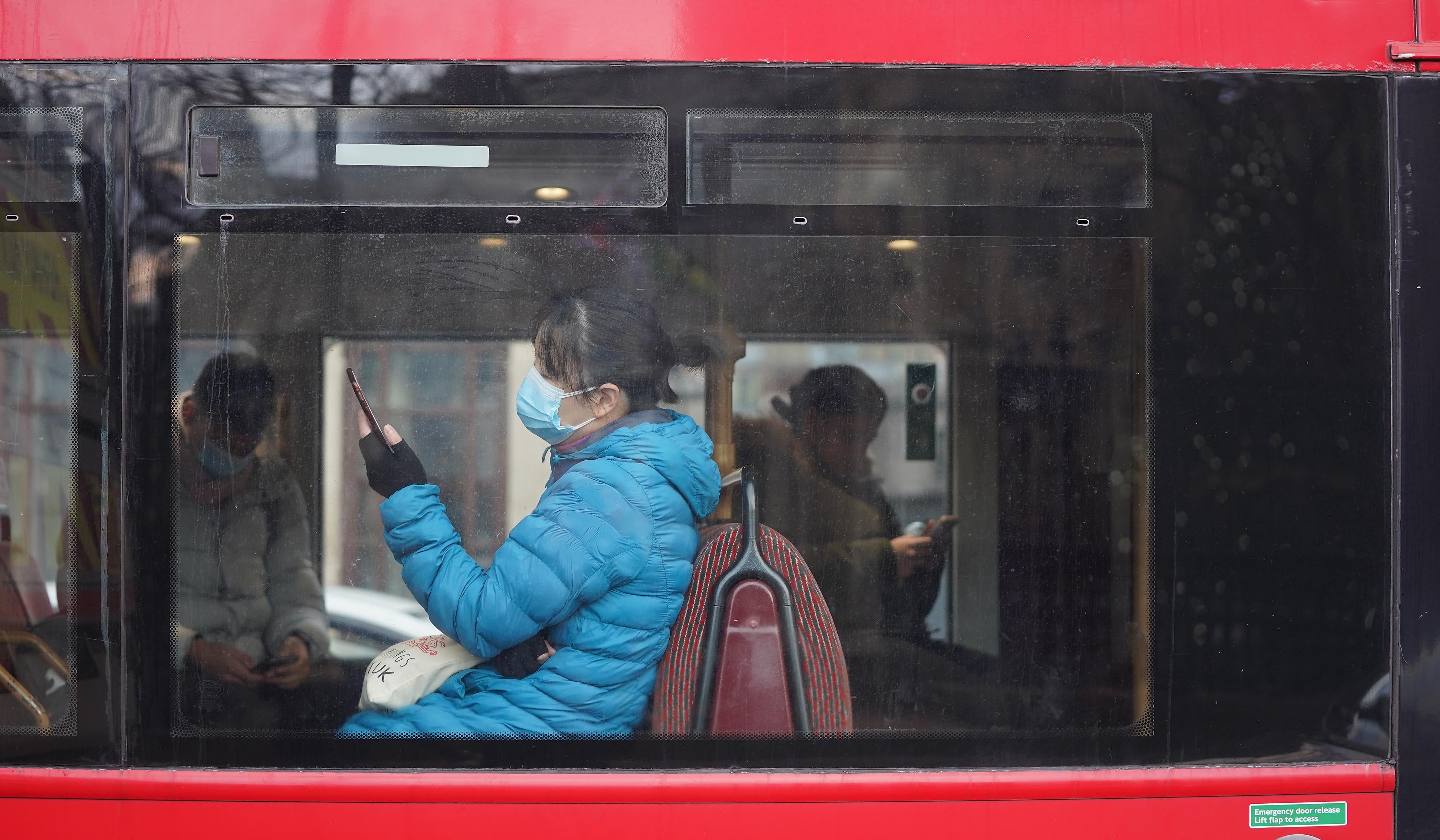Workers face first commute since Plan B axed as masks in classrooms end
Boris Johnson announced Plan B measures would be axed with work-from-home guidance scrapped immediately.

Your support helps us to tell the story
From reproductive rights to climate change to Big Tech, The Independent is on the ground when the story is developing. Whether it's investigating the financials of Elon Musk's pro-Trump PAC or producing our latest documentary, 'The A Word', which shines a light on the American women fighting for reproductive rights, we know how important it is to parse out the facts from the messaging.
At such a critical moment in US history, we need reporters on the ground. Your donation allows us to keep sending journalists to speak to both sides of the story.
The Independent is trusted by Americans across the entire political spectrum. And unlike many other quality news outlets, we choose not to lock Americans out of our reporting and analysis with paywalls. We believe quality journalism should be available to everyone, paid for by those who can afford it.
Your support makes all the difference.Commuters across the country are set to travel in to work for the first time since Plan B measures to curb the spread of Omicron were axed on Wednesday.
The Prime Minister told MPs in the Commons that work-from-home guidance would be dropped immediately and rules on face coverings in classrooms would also be scrapped in England from Thursday.
Other measures including the requirement to wear face masks on public transport and in shops will end next Thursday.
The legal requirement for people with coronavirus to self-isolate will also be allowed to lapse when the regulations expire on March 24, and that date could be brought forward.
The move could help appease Mr Johnson’s Tory critics at a time when the Prime Minister has been under pressure over Downing Street parties.
It comes after Covid infection levels fell in most parts of the UK for the first time since early December, according to the Office for National Statistics (ONS).
Mr Johnson said that while there are some places where cases are likely to continue rising, including in primary schools, scientists believed “it is likely that the Omicron wave has now peaked nationally”.
But senior medics have criticised the decision as “not guided by data”, while teachers’ leaders have branded the end of mask mandates in schools “premature”.
Dr Chaand Nagpaul chair of the British Medical Association (BMA) council, said scrapping Plan B measures at such a pace “risks creating a false sense of security” with the NHS still under crippling pressure.
“This decision clearly is not guided by the data,” he said.
“When Plan B was introduced in December, there were 7,373 patients in hospital in the UK. The latest data this week shows there are 18,9791.”
Dr Nagpaul warned that ending mandates on mask-wearing would “inevitably increase transmission” and place the most vulnerable at a higher risk.
And Matthew Taylor, chief executive of the NHS Confederation representing health bodies, said now “is not the time for complacency about this virus”.
Deputy chief executive of NHS Providers Saffron Cordery said that some trusts had reported they were expecting their peak later this week despite a fall in case numbers nationally due to regional variations in the number of hospital admissions.
“That’s why it’s important that there is recognition that this surge isn’t over, and that the health service is still operating under extremely challenging circumstances,” she added.
Mary Bousted, joint general secretary of the NEU teachers’ union, told the PA news agency: “If you’re going to look for the greater of lesser evil, it is a much greater evil for pupils to have more school because they have caught Covid and they have to isolate than it is to wear a mask, so I think while we all want mask-wearing to be over when it is safe, this is premature”.
Stormont ministers are set to consider relaxations to restrictions, with latest Department of Health data indicating Northern Ireland is likely at the peak of cases in the Omicron surge.
They will be informed by the latest Department of Health data which indicates Northern Ireland is likely at the peak of cases in the Omicron surge.
A paper, seen by the PA news agency, advises that case numbers fell substantially in the last week “primarily due” to reduced PCR tests due to a change in testing policy.
But it notes the region is “likely to be at or around peak in terms of case numbers for the Omicron wave at present”.